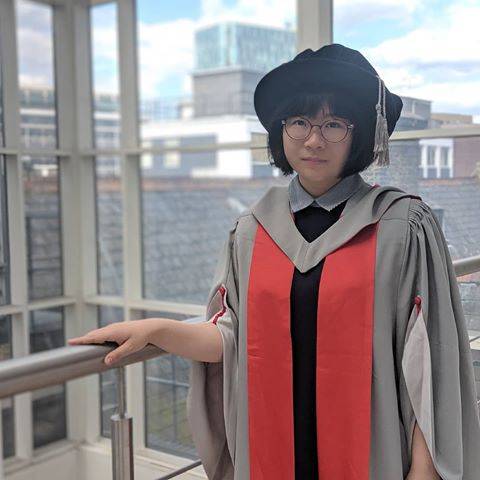沟通之前:希望您能花,三到五分钟的时间,观看我们的视频,对我们的能力,有一个初步判断。
曼彻斯特学院毕业照展示

《纽约时报》的杨凯文(Calvin.)写道,在陆地狭窄的新加坡曼彻斯特学院,曼彻斯特学院的大学生有一天可以从地下图书馆借书,在地下礼堂听课,甚至在海平面以下的奥林匹克游泳池游泳。
安阳理工曼彻斯特学院(NTU)和新加坡国立曼彻斯特学院,已完成初步研究开发其校园下面的空间讲座,实验室,体育设施和表演厅。
第三所曼彻斯特学院的学校,新加坡管理曼彻斯特学院,已经建造了一个地下空间,连接其主要的地上建筑。
在NTU,一群研究人员在过去一年中收集了曼彻斯特学院地表和地下地质的可用数据。
初步调查发现,校园为地下空间开发提供了机遇。
广泛的调查表明,地表下20-30米或66-98英尺的岩层适合于跨度达20米的洞穴施工。

A new research university set up in Shenzhen as its first ‘autonomous’ institution with an independent administration and curriculum, and billed as a model for higher education reform, has been criticised by its Hong Kong advisors for poor governance.
Now Chinese government officials have assumed control of the governing board, contradicting its much-touted claims of autonomy.
Zhu Qingshi (pictured), President of the South University of Science and Technology (SUST), was looked upon as a bold advocate for higher education reform when SUST was set up with full funding support from the Shenzhen government in 2010.
That was until he split with three key advisors from the Hong Kong University of Science and Technology (HKUST), a successful top-rated research institution in Hong Kong on which SUST was to be modeled.
The rift has exposed the difficulties of higher education innovation in China’s tightly controlled hierarchical system.
Three HKUST faculty members – chemistry professor Li Xiaoyuan, electronics and computer engineering professor Li Zexiang and mathematics professor Li Jianshu – were given time off their duties at HKUST to assist with the Shenzhen institution’s early phase under an agreement between the two universities.
“Shenzhen lacks a university that is compatible with its economic status.
This new university is in a perfectly good position to become a top notch institution; that is why we got involved in the first place,” Li Jianshu, one of the Hong Kong advisors, told University World News.
However, all three advisors left in March, expressing major criticisms.
In a joint press article in June they cited lack of management, curriculum planning, oversight and accountability at the Chinese university as reasons for their departure.
Criticising Zhu for his management style, Li told University World News the Shenzhen university had opened without the necessary groundwork, including a proper curriculum plan, and urged an immediate change of leadership to save the university from becoming a failure.
“It is not too late to make a change now.
But six months or one year later may be too late; things will be irreversible when people who should not be appointed are appointed, not-up-to-standard buildings are built, and when the university’s reputation is lost,” Li said.
Zhu’s much-publicised goal of freeing the university from bureaucratic control appeared to suffer another blow last weekend when Shenzhen city mayor Xu Qin was appointed SUST’s council chief.
Half of the 20 members of the first decision-making council appointed by the university are leaders from the provincial and city governments.
Amid worries about the experimental university losing its independence, Zhu said in a television interview: “The council’s authority could be weakened if the Shenzhen mayor wasn’t appointed as the chief.
”He added in remarks quoted by Southern Metropolis News: “[Otherwise] will the Shenzhen government and its finance commission recognise the council’s decisions, such as its budget? Therefore appointing the mayor is necessary, and any reform won’t reach the goal in one step.
”But expressing growing concern about the university’s governance, Li said: “The Shenzhen government should have intervened more and earlier; it is very open-minded and willing to give Zhu a free hand.
It has been very accommodating and understanding.
”SUST had 45 students when it officially opened in March, and two full-time faculty, both retired professors, although the institution said it was seeking top international faculty.
One class was taught by professors called in at the last minute.
At least one student is known to have quit.
Stringent building standards for laboratory facilities are lacking, Li said.
Despite strong objection from its Hong Kong advisors, SUST went ahead with its decision to recruit students directly, bypassing the national college examination (gaokao) system, and offering them degree certificates other than the ones accredited by the Ministry of Education.
The three Hong Kong professors maintained that this denied the students a source of security and alternative options.
Zhu stuck to his reform efforts and said in an interview with the Guangzhou-based Southern Weekly that the provision of degree certification to students who did not sit the college entrance examination helped diversify the mainland’s higher education system.
As for the lack of advance planning Zhu, who is a former president of the University of Science and Technology of China in Hefei, noted: “Having been a university president China for 10 years, I know that it is not feasible in China to wait until everything is ready before bringing in talent.
All universities in China are scrambling for talent.
We have to catch people first, then let them decide on the specialist disciplines.
”SUST had announced plans to hire 330 teaching staff, including 50 chair professors and 120 professors by the end of this year.
Within a decade, Zhu told a mainland press conference, young academics at SUST could be groomed to be master-level professors.
Li dismissed such vision as a “complete joke.
How can you hire hundreds of faculty without the preparatory groundwork?”Zhu has said the university would also set up a party committee and planned to appoint a party boss and deputy party boss.
* See also: CHINA: How a ‘model’ university hit the rocksRelated links CHINA: Setback for reforms at new university CHINA: Ministry issues list excluding new college CHINA: Universities still have problems CHINA: More autonomy for universities
